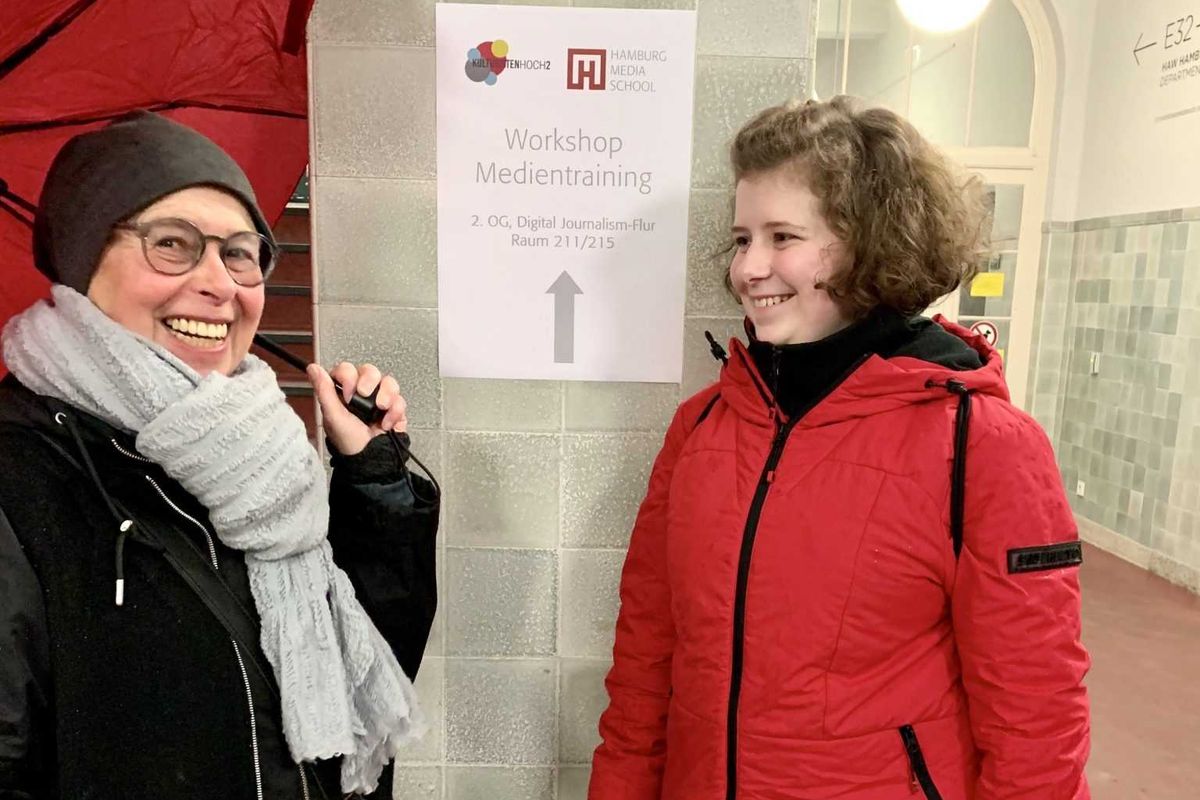It took 343 embroiderers in 46 countries 13 years to make one absolutely stunning dress
A truly global, multicultural endeavor.

Women from around the world helped create the Red Dress as a collective embroidery project.
Few things bring people together more beautifully than art. Whether it's music, sculpture, paint or fabric, the arts are a way for us to express ourselves, our cultures and our common humanity.
But rarely do we witness one singular piece of art truly encapsulating the creativity of our human family.
At first glance, the dress created for the Red Dress project is quite obviously stunning. It looks as though it could be worn by a royal—though a royal from where? The style, colors and patterns of the dress don't shout any particular country or culture; in fact, we can point to different elements of it and say it looks like it belongs on any continent.
There's a reason for that. The dress is made out of 84 pieces of burgundy silk dupion, which have spent the past 13 years being sent around the world to be embroidered by 343 people from 46 countries—a truly global, multicultural creation.
Of those 343 embroiderers, 136 were commissioned artisans who were paid for their work and receive a portion of all ongoing exhibition fees. The rest were volunteers who contributed their stitches at events in various countries. Just seven of the embroiderers were men.
British textile artist Kirstie Macleod conceived the project in 2009 as "an investigation into identity, with a desire to connect with women from the around without borders and boundaries." The basic design started as a sketch on the back of a napkin and has grown into a tangible garment that is not only a gorgeous work of art but a platform for women around the world and from all walks of life to express themselves and have their voices heard.
As shared on the project's website:
"Embroiderers include female refugees from Palestine and Syria, women seeking asylum in the UK from Iraq, China, Nigeria and Namibia, victims of war in Kosovo, Rwanda, and DR Congo; impoverished women in South Africa, Mexico, and Egypt; individuals in Kenya, Japan, Turkey, Sweden, Peru, Czech Republic, Dubai, Afghanistan, Australia, Argentina, Switzerland, Canada, Tobago, Vietnam, Estonia, USA, Russia, Pakistan, Wales, Colombia and England, students from Montenegro, Brazil, Malta, Singapore, Eritrea, Norway, Poland, Finland, Ireland, Romania and Hong Kong as well as upmarket embroidery studios in India and Saudi Arabia."
On Instagram, Kirstie Macleod shared a panel of the dress that was embroidered by two women in Kosovo, who shared some of their reflections on their experiences in the war there.
They stitched words into the birds they embroidered:
"Better one winter in your own country than a hundred springs away."
"The greatest wealth is to live content with little."
"Freedom has come. Love yourself first."
"Love all. Trust some. Hate none."
"A winter is a winter. Be nice, everyone."
"We live in peace now."
The creation of the dress began in 2009 and was completed in 2022. Each woman embroidered a piece of her own story into the dress, which contains millions of stitches. From established professional artisans to first-time embroiderers, the women were encouraged to share something that expressed their personal identities as well as their cultures. Some used traditional embroidery styles that had been practiced for hundreds of years where they are from. Others stitched in meaningful elements of their life stories. Some of the women are also using textile work to rebuild their lives and earn a consistent living.
The dress is on tour, being displayed in museums and galleries around the world. The photos showing women of various ages and ethnicities wearing the dress are made all the more moving knowing the history of how and by whom it was made.
Absolutely stunning. What a wonderful idea to connect women in a way that lets them share their stories and showcases and beautifully honors them.
This article originally appeared three years ago.
- 9 reasons you shouldn't throw away clothes, and 4 things you can ... ›
- This 11-year-old who loves to crochet has become a viral ... ›
- From quilts to embroidery: Creative ways artists memorialize those ... ›
- Why costumes for streaming shows have dropped in quality - Upworthy ›
- Woman recreates her grandma's dress designs from the 40s - Upworthy ›



 A UPS truck with package deliveries.Image via Wikipedia
A UPS truck with package deliveries.Image via Wikipedia
 Cher was the biggest phenomenon on the planet for the better part of the '70s and '80s.Casblanca Records/
Cher was the biggest phenomenon on the planet for the better part of the '70s and '80s.Casblanca Records/

 A high school volunteer with her senior "tandem."
A high school volunteer with her senior "tandem."  KH2 makes leaving the house more accessible to senior citizens.
KH2 makes leaving the house more accessible to senior citizens.  Many "culture buddies" stay in contact after the program ends.
Many "culture buddies" stay in contact after the program ends.  KH2 provides students with excellent life skills and lasting connections.
KH2 provides students with excellent life skills and lasting connections. 
 Parents posing with their young kids on a basketball court. via
Parents posing with their young kids on a basketball court. via